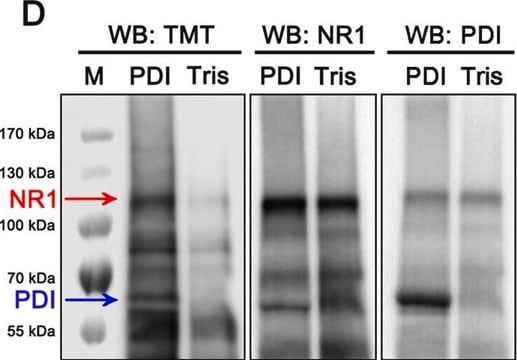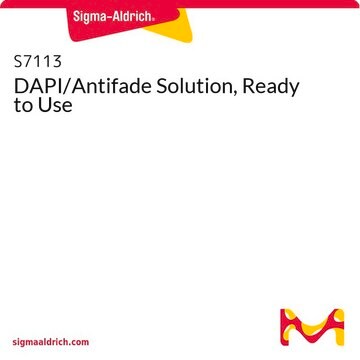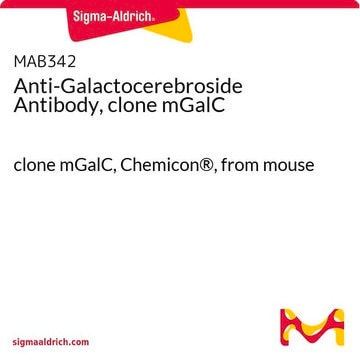07-356
Anti-NR3A Antibody
Upstate®, from rabbit
Synonym(s):
Anti-GluN3A, Anti-NMDAR-L, Anti-NMDAR3A, Anti-NR3A
Sign Into View Organizational & Contract Pricing
All Photos(1)
About This Item
UNSPSC Code:
12352203
eCl@ss:
32160702
NACRES:
NA.41
Recommended Products
biological source
rabbit
Quality Level
antibody form
purified antibody
antibody product type
primary antibodies
clone
polyclonal
species reactivity
rat, human
species reactivity (predicted by homology)
mammals
manufacturer/tradename
Upstate®
technique(s)
western blot: suitable
isotype
IgG
NCBI accession no.
UniProt accession no.
shipped in
dry ice
target post-translational modification
unmodified
Gene Information
human ... GRIN3A(116443)
Specificity
NR3A
Immunogen
peptide corresponding to amino acids 1098-1113 (SRKTELEEYQKTNRTC) of rat NR3A
Application
Anti-NR3A Antibody is an antibody against NR3A for use in WB.
Research Category
Neuroscience
Neuroscience
Research Sub Category
Oxidative Stress
Neurodegenerative Diseases
Oxidative Stress
Neurodegenerative Diseases
Quality
routinely evaluated by immunoblot in a rat brain microsomal protein preparation
Target description
130kDa
Physical form
0.1M Tris-glycine, pH 7.4, 0.15M NaCl, 0.05% sodium azide before the addition of glycerol to 30%
Format: Purified
Protein A chromatography
Storage and Stability
2 years at -20°C
Legal Information
UPSTATE is a registered trademark of Merck KGaA, Darmstadt, Germany
Disclaimer
Unless otherwise stated in our catalog or other company documentation accompanying the product(s), our products are intended for research use only and are not to be used for any other purpose, which includes but is not limited to, unauthorized commercial uses, in vitro diagnostic uses, ex vivo or in vivo therapeutic uses or any type of consumption or application to humans or animals.
Not finding the right product?
Try our Product Selector Tool.
Storage Class Code
10 - Combustible liquids
WGK
WGK 1
Certificates of Analysis (COA)
Search for Certificates of Analysis (COA) by entering the products Lot/Batch Number. Lot and Batch Numbers can be found on a product’s label following the words ‘Lot’ or ‘Batch’.
Already Own This Product?
Find documentation for the products that you have recently purchased in the Document Library.
Hoau-Yan Wang et al.
The Journal of neuroscience : the official journal of the Society for Neuroscience, 29(35), 10961-10973 (2009-09-04)
Alzheimer's disease (AD) is characterized by synaptic dysfunction and cardinal neuropathological features including amyloid plaques and neurofibrillary tangles. Soluble amyloid-beta (Abeta) can suppress synaptic activities by interacting with alpha7 nicotinic acetylcholine receptors (alpha7nAChRs). Here, we show that alpha7nAChR and NMDA
Roles of diverse glutamate receptors in brain functions elucidated by subunit-specific and region-specific gene targeting.
Mori, Hisashi and Mishina, Masayoshi
Life Sciences, 74, 329-336 (2003)
Amino terminal domain regulation of NMDA receptor function.
Herin, Greta Ann and Aizenman, Elias
European Journal of Pharmacology, 500, 101-111 (2004)
Plinio D Favaro et al.
PLoS biology, 16(12), e2006838-e2006838 (2018-12-27)
The disc-large (DLG)-membrane-associated guanylate kinase (MAGUK) family of proteins forms a central signaling hub of the glutamate receptor complex. Among this family, some proteins regulate developmental maturation of glutamatergic synapses, a process vulnerable to aberrations, which may lead to neurodevelopmental
N-methyl-D-aspartate receptor subunit NR3a expression and function in principal cells of the collecting duct.
Sproul, A; Steele, SL; Thai, TL; Yu, S; Klein, JD; Sands, JM; Bell, PD
American Journal of Physiology: Renal Physiology null
Our team of scientists has experience in all areas of research including Life Science, Material Science, Chemical Synthesis, Chromatography, Analytical and many others.
Contact Technical Service








